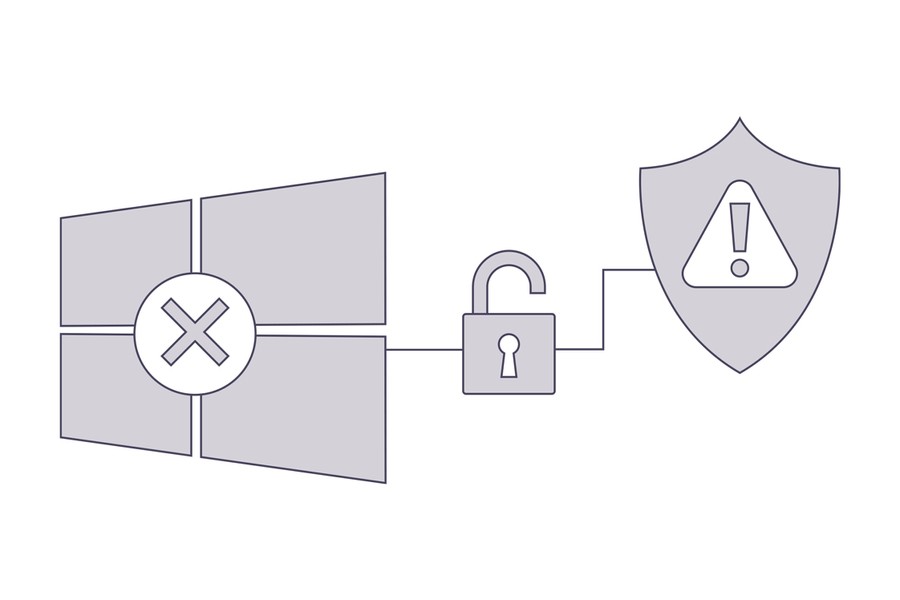On the 14 October 2025, Microsoft will officially retire Windows 10. For many of us, this operating system has quietly powered our computers for almost a decade. You may not even have noticed it working in the background, but it’s been keeping your PC stable and relatively secure all this time.
So, what does the end of Windows 10 mean for you, and why should you act now?
What’s changing?
When Microsoft ends support, Windows 10 won’t suddenly stop working. You’ll still be able to turn on your computer, access the internet, write emails, or use online banking. However, you will no longer receive security updates, meaning your PC will become increasingly vulnerable to viruses, scams, and cyber criminals.
The risks of doing nothing
By running unsupported software like Windows 10 you may quickly become a target for scammers and hackers. Without regular updates from Microsoft, any new weaknesses in the software will remain unfixed, leaving the door wide open for cyber criminals.
Without regular software updates, your computer will have an increased possibility of exposure to ransomware – a type of malware that can lock your data files and demand a payment to unlock them. Other risks include online banking fraud or identity theft, which can happen when someone gains access to your email or computer; and phishing emails, which look convincing but are designed to trick you into clicking harmful links or revealing private information.
What should you do?
Check your device: if your computer is more than six years old, it might not be capable of running Windows 11, the newer operating system. You can visit the Microsoft website or ask a trusted local IT provider to check your device’s compatibility.
Consider upgrading: if your current PC can run Windows 11, you may only need a software upgrade. If not, it might be time to consider replacing it. This can feel like a big step, but today’s modern devices are faster, more secure, and easier to use than ever before.
Back up important files: before making any changes, it’s a good habit to save your important documents and photos onto an external drive or a trusted cloud service.
Staying safe online – our cyber tips
At JM Finn, we regularly advise our clients on effective ways to stay secure online. Here are a few simple tips:
- Use strong passwords: many people still use simple passwords (such as a child’s name or sports team) or reuse the same one across multiple accounts, which makes it much easier for cyber criminals to crack. Instead, try the ‘three random words’ method. For example: `TeacupRiverGarden`, which can be easy to remember yet hard to guess. Also include a random number at the beginning (not the end) and include special characters such as: “!” “£”, or “$”.
- Turn on multi-factor authentication: this adds a second layer of protection to your accounts, such as a code sent to your mobile phone when logging in. It’s one of the most powerful ways to keep your email and online banking secure.
- Use a password manager: these useful tools store all your passwords safely in one place and even help create strong passwords for you. You only need to remember one (strong) master password.
- Be wary of emails and phone calls: if something sounds urgent, threatening, or too good to be true, it usually is. Never click on unexpected links or attachments and never share personal information unless you’re sure who you’re speaking to.
- Scams to watch out for: The National Cyber Security Centre has reported a rise in email scams that claim to be from banks, delivery companies, or even friends. Others might say your account has been hacked and urge you to act now. These are designed to trick and panic you. Don’t click or respond immediately, take a moment and check with someone you trust.
A final thought
As a JM Finn client, you’ve entrusted us to try to help protect your financial future, but today, that also means helping you stay safe online. While change can sometimes feel overwhelming, especially with technology, small positive steps can go a long way.
Upgrading your computer, reviewing your passwords, and being cautious with emails are simple actions that have a big impact. You don’t need to be a computer expert, just aware and prepared.
We’re always here to support you, and if you have concerns about online safety or the retirement of Windows 10, we encourage you to speak to your JM Finn Investment Manager, who can consult with our IT team.
For more comprehensive information on cyber security, including best practice to create a strong password, download our Cyber Crime Awareness guide.


